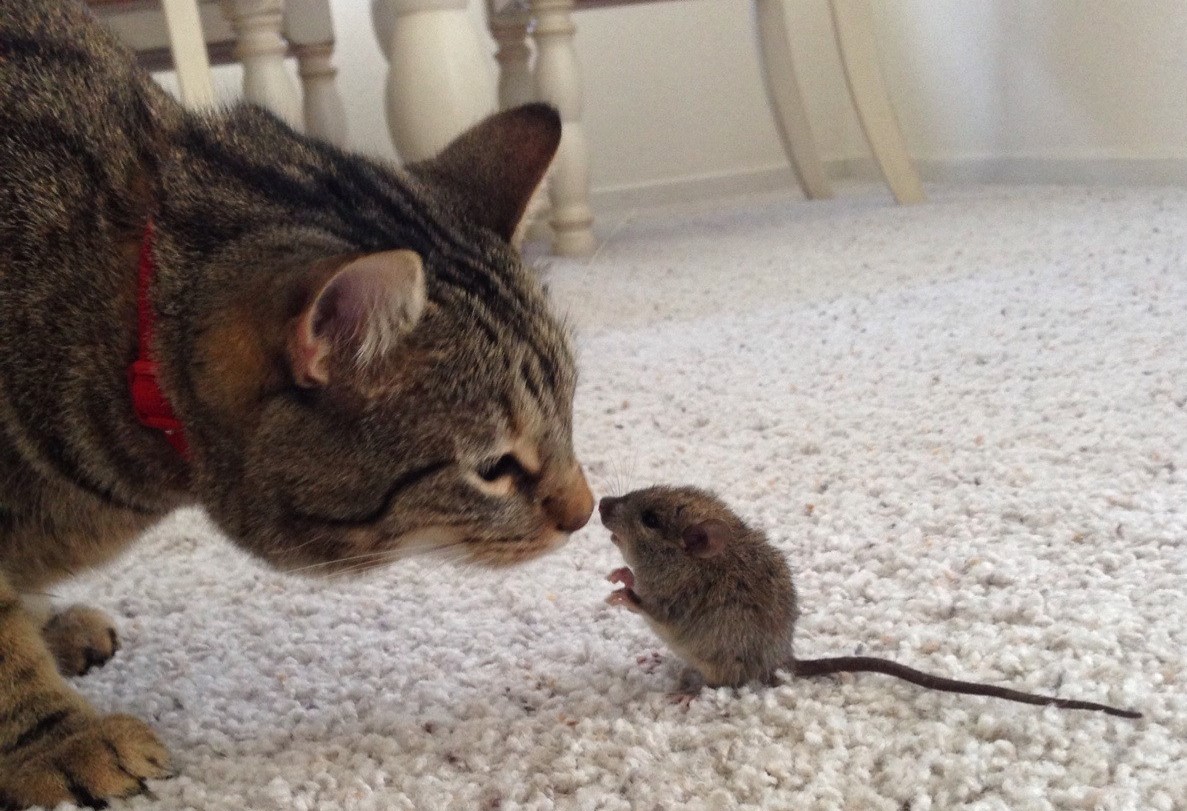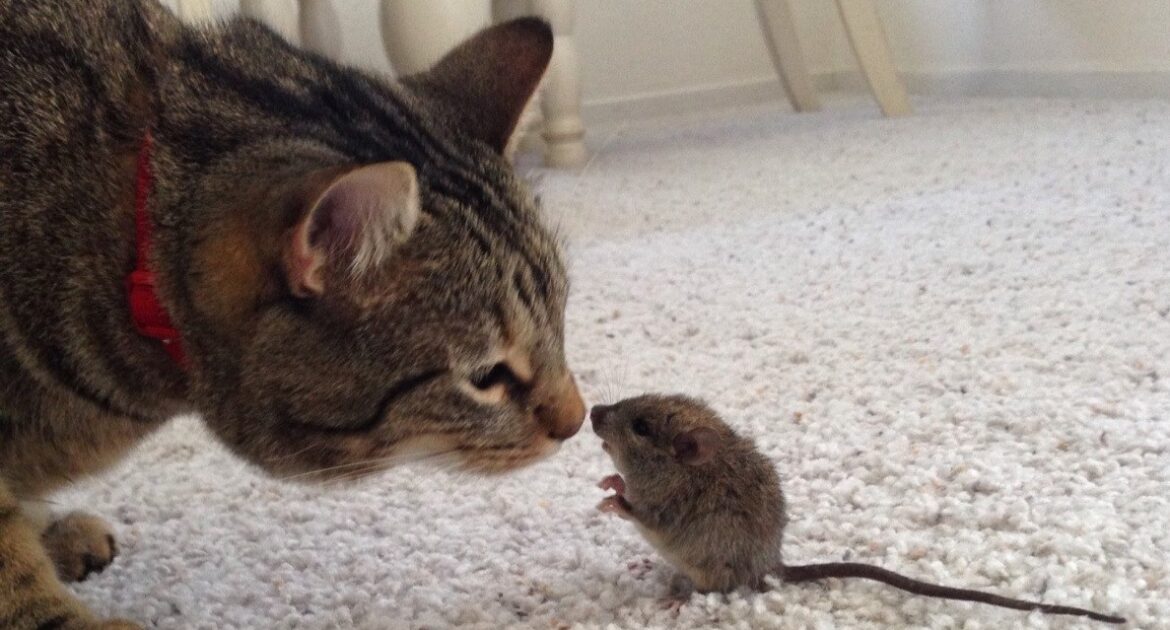There is a synonymous relationship that exists between cats and mice. Many people automatically assume that owning a cat somehow protects their property against rodent infestations. While there might be some truth to the assumption because cats are predators of mice, a homeowner will find that cats and mouse infestation can coexist.
A mouse infestation requires the assistance of a professional wildlife service. The number of mice in an infestation can reach into the hundreds or thousands, meaning DIY methods and hopes placed in your pet cat will not resolve the matter. In fact, mice and their droppings carry a variety of diseases that you will want to keep your cat away from, so the sooner you act against a mouse infestation, the better for everyone in your home.
The Prevalence of the Cat as Mouse Catcher Myth
The prevalence of cats as mouse catchers is likely due to cartoons and inaccurate assumptions. While a cat will eat an occasional mouse, they are not likely to hunt them with any kind of persistence or reliance. Ultimately, a house cat hunts and chases when it wants.
A house cat is a pet, meaning people provide for it. The animal does not need to hunt for its food because it receives scheduled meals throughout the day. You have likely seen several viral videos showing a cat just sitting in a room with a mouse, showing no interest in it at all. Why would it have to? Think about it, if food is prepared and delivered to you, would you have any need to cook?
The Limitations of Cats
When considering the capabilities of cats, you need to think in terms of numbers: one cat against hundreds of mice. If a cat is hungry, ambitious, and motivated enough, it is possible it might eat or kill one mouse per day. Therefore, to rid a house of one hundred mice, it would take a cat approximately 100 days, correct? Nope.
Mice reproduce at an alarming rate. Therefore, while a cat might make a minor dent in the population, numbers will be restored or increased within weeks. A cat is no match for an infestation.
The Risks to Pet Cats
Beyond the impossibility of a single cat eliminating an entire rodent population, you must consider the risk to your pet. While a mouse will not inflict much, if any, physical damage on a cat, it can harm the animal in other ways. Mice are known to carry diseases and bacteria, and other harmful agents reside in their feces and urine.
A cat that attacks and potentially eats a mouse is risking infection and disease. In the majority of cases, your pet will survive its meal unscathed; there is the possibility it could become ill. If your cat has been in contact with mice, contact your local vet to receive help or treatment.
The Use of Preventative Techniques
Prevention is the best way to keep your home and pet safe from rodent infestations. The best preventative method is a clean property. Mice want what all living things want, food, shelter, and safety. You want to make your house unattractive by depriving the surrounding landscape of these things. Therefore, keep your lawn cut and keep plantings away from the foundation of your home. Make sure if you feed your cat outside that you clean and collect any scraps. Finally, ensure the foundation and all entry points of the house are well-sealed.
The Need for Professional Removal
A rodent infestation will require the assistance of professionals rather than the help of your pet cat. While you may have only seen one mouse, there are likely more within the walls, attic, basement, etc. Humane removal is the only way to ensure your home is clear of mice while protecting the wildlife from unnecessary attacks from a pet cat.
If you believe you have a mouse problem, do not hesitate to contact Skedaddle Humane Wildlife Control. The company will schedule a property assessment and send a team out to determine the best course of action, including exclusionary measures like one-way exits.




